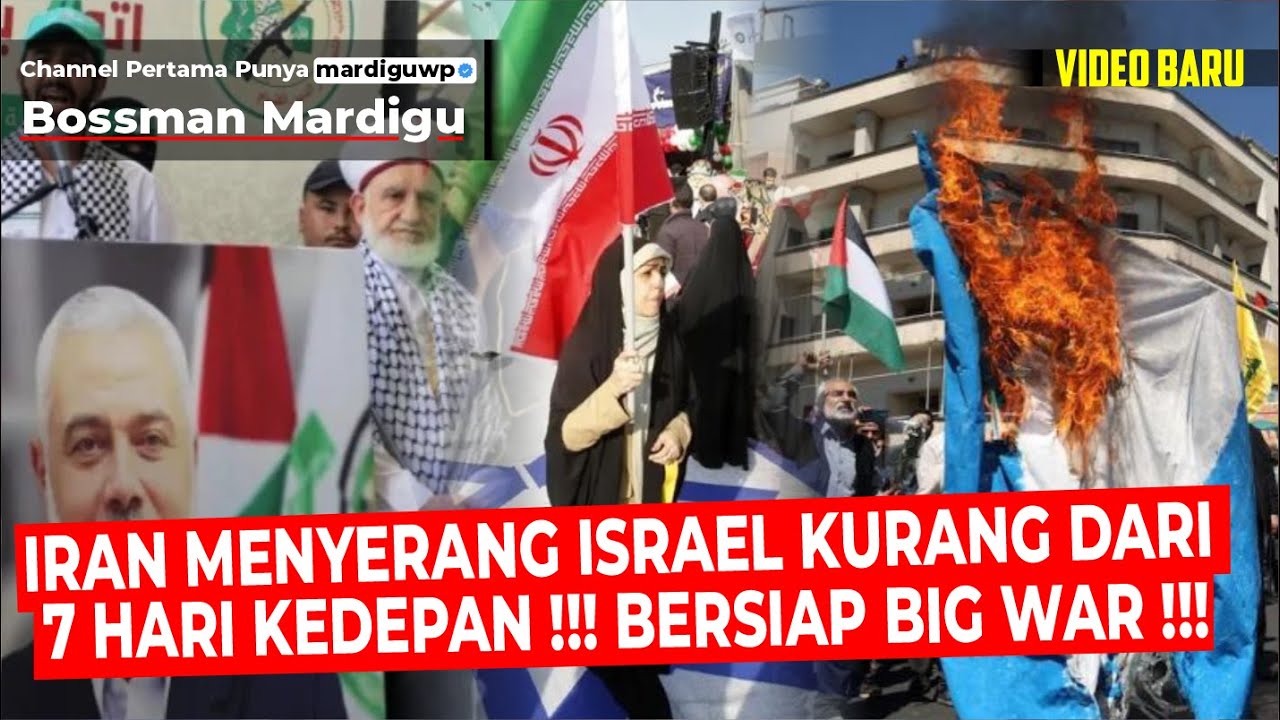Seruan Gencatan Senjata di Tengah Sengitnya Pertempuran Hizbullah Israel
Summary
TLDRIntense clashes between Israel and Hizbullah continued in late November 2024, amid rising tensions. Despite ongoing efforts by the EU and the US to broker a ceasefire, Hizbullah fired over 250 rockets into Israel, while Israel retaliated by targeting southern Lebanon and Beirut’s outskirts. The violence, which has resulted in numerous casualties, escalated following an Israeli airstrike that killed dozens in Beirut. EU officials emphasized the need for more pressure on both sides, with hopes pinned on Israeli Prime Minister Netanyahu's approval of a ceasefire agreement. Meanwhile, the EU is also offering financial and technical aid to Lebanon’s military.
Takeaways
- 😀 Intense clashes between Israel and Hezbollah continued during the week of November 24, 2024, amidst escalating conflict.
- 😀 The European Union and the United States are actively working to implement a ceasefire amid ongoing violence.
- 😀 On Sunday, Hezbollah fired over 250 rockets into various Israeli cities, including Tel Aviv, in retaliation for Israeli attacks.
- 😀 Israel's military responded by bombing southern Lebanon and areas near Beirut, targeting Hezbollah positions.
- 😀 The Israeli airstrikes resulted in seven injuries in Israel, and some rockets reached Tel Aviv.
- 😀 Hezbollah's rocket attack was a response to Israeli strikes that killed dozens of people in Beirut the day before.
- 😀 Israel’s airstrikes on Sunday targeted suspected Hezbollah military sites in Tyre and Noura, resulting in the deaths of one Lebanese soldier and 18 others.
- 😀 Lebanese Prime Minister Najib Mikati strongly condemned Israel's attacks, calling them an attempt to derail efforts for a ceasefire.
- 😀 EU Foreign Affairs Chief Josep Borrell emphasized the need for greater pressure on both sides to reach a ceasefire agreement, with Israel holding key influence in the process.
- 😀 Borrell noted that Netanyahu's government has shown little interest in the proposed ceasefire, insisting on new conditions before agreeing to terms.
- 😀 Borrell, during his visit to Beirut, expressed the EU’s readiness to allocate €200 million to support the Lebanese military and institutions.
Q & A
What triggered the conflict between Israel and Hizbullah in late November 2024?
-The conflict escalated when Hizbullah fired over 250 rockets at Israeli cities, including Tel Aviv, on November 24, 2024, in retaliation for Israeli airstrikes on southern Lebanon and areas around Beirut.
How did Israel respond to Hizbullah's rocket attacks?
-In response, Israel’s military continued its airstrikes, targeting Hizbullah's military sites in southern Lebanon and near Beirut, resulting in the deaths of at least 19 individuals, including a Lebanese soldier.
What was the significance of the attacks on Tel Aviv?
-The rocket attacks on Tel Aviv, Israel’s economic hub, were a significant escalation in the conflict, as Tel Aviv is a major civilian and business center, symbolizing the increasing intensity of hostilities.
What were the consequences of the Israeli airstrikes in Beirut?
-The Israeli airstrikes on Beirut and southern Lebanon led to the deaths of several people, including 18 civilians, and are seen as part of Israel’s broader military strategy to weaken Hizbullah.
What was the reaction of Lebanon’s Prime Minister, Najib Mikati, to Israel's actions?
-Prime Minister Mikati condemned Israel’s airstrikes, calling them an obstruction to efforts aimed at achieving a ceasefire and describing them as a direct message from Israel rejecting peace initiatives.
What role is the European Union playing in trying to end the conflict?
-The European Union, represented by Foreign Minister Joseph Borrell, is actively working to mediate a ceasefire by applying pressure on both sides and offering financial and technical support to Lebanon’s military.
How much financial support has the EU pledged to Lebanon’s military?
-The European Union has pledged €200 million to support Lebanon’s military forces, as part of its efforts to strengthen the country’s security and institutions amid the conflict.
What is the key obstacle to reaching a ceasefire agreement?
-The key obstacle is Israeli Prime Minister Netanyahu’s reluctance to agree to a ceasefire without setting additional conditions, as he continues to push for new terms before agreeing to a peace settlement.
What did Joseph Borrell suggest about Israel’s willingness to accept a ceasefire?
-Borrell expressed skepticism about Israel’s willingness to accept a ceasefire proposal, noting that Netanyahu appeared more focused on imposing new preconditions rather than accepting the existing proposal.
What is the broader international concern regarding the conflict?
-The broader international concern is the humanitarian impact and the risk of further destabilization in the region, as both sides continue to escalate hostilities, with potential repercussions for neighboring countries and global peace efforts.
Outlines

This section is available to paid users only. Please upgrade to access this part.
Upgrade NowMindmap

This section is available to paid users only. Please upgrade to access this part.
Upgrade NowKeywords

This section is available to paid users only. Please upgrade to access this part.
Upgrade NowHighlights

This section is available to paid users only. Please upgrade to access this part.
Upgrade NowTranscripts

This section is available to paid users only. Please upgrade to access this part.
Upgrade NowBrowse More Related Video

Kronologi Dua TNI Pasukan UNIFIL Terluka Akibat Serangan Israel

Israel, Iran trade missile strikes after U.S. hits Iran

War in Ukraine Summarized 2023 | Animated History

Usai Bentrok di Amsterdam, Suporter Sepak Bola Israel Ricuh di Perancis

Putin Calls PM Modi, Offers “Full Support” Against Terrorists | Vantage with Palki Sharma | N18G

IRAN MENYERANG ISRAEL KURANG DARI 7 HARI KEDEPAN !!! PREPARE FOR BIG WAR !!! - Mardigu Wowiek
5.0 / 5 (0 votes)